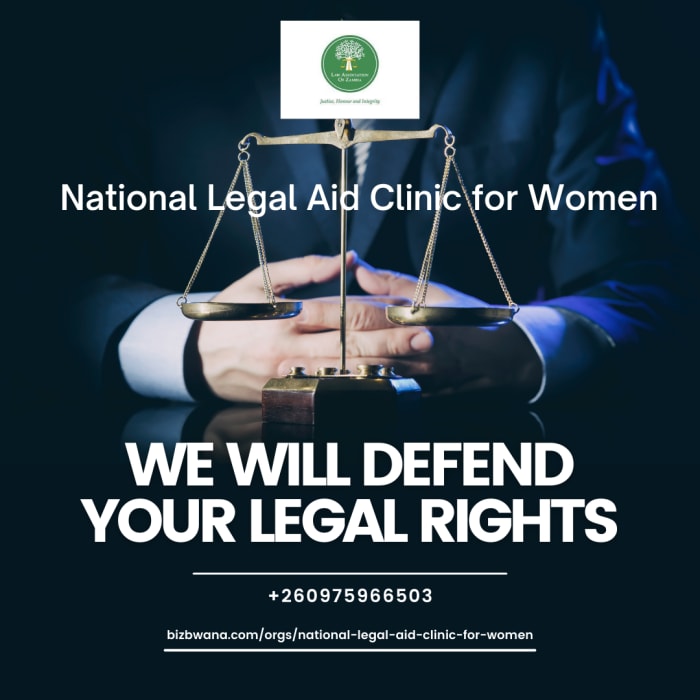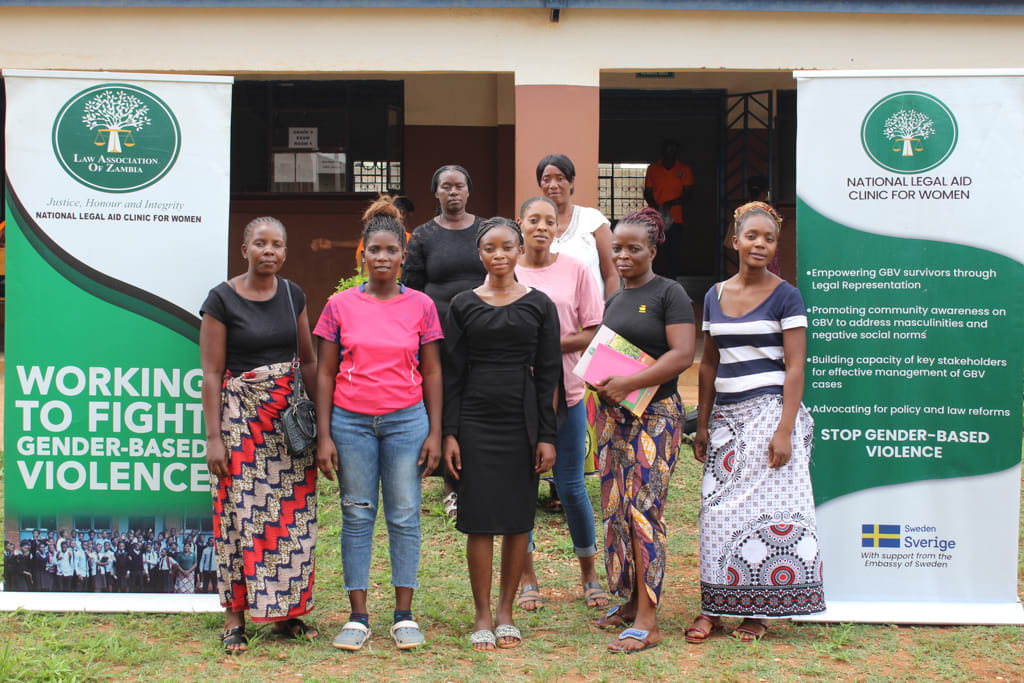
Ensuring gender equality and women’s rights are strengthened in Zambia
The National Legal Aid Clinic for Women (NLACW) is an organization that aims to promote the rights of women and eliminate discrimination against them. One of the ways in which NLACW works towards this goal is by collaborating with policy makers to bring about policy reforms. This is done through the creation of policy briefs, written submissions to parliament, and lobbying.
Through these efforts, NLACW advocates for policies that support the fair and equal treatment of women. This includes policies that protect women from discrimination and ensure that their rights are upheld. By working with policy makers, NLACW is able to influence change at a systemic level, creating a more just and equitable society for all.
NLACW's work is crucial in the fight for gender equality and contributes to building a world where women are able to fully exercise their rights and live free from discrimination.

